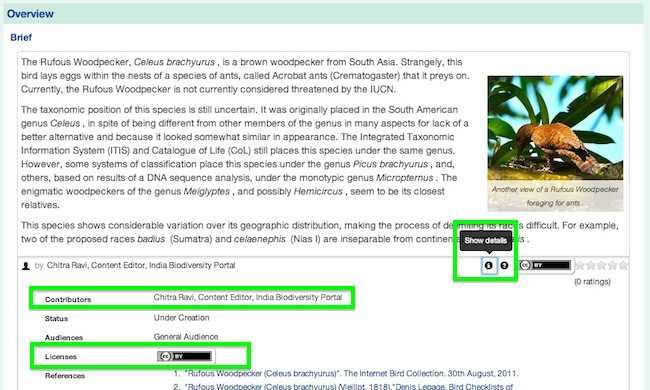Fostering Unity for Stability in the Gulf of Guinea: Insights from Dr. Ibrahim Gambari
Uniting Nations to Tackle Security Challenges in the Gulf of Guinea
The Gulf of Guinea, a strategically important maritime region along Africa’s western coast, faces an array of security threats that jeopardize both regional and international interests. Issues such as piracy, illegal fishing operations, and human trafficking have escalated over recent years, undermining economic growth and safety at sea. Dr. Ibrahim Gambari, Nigeria’s former Foreign Affairs Minister and distinguished diplomat, stresses that overcoming these challenges demands robust cooperation among the coastal states.
By forging strong alliances focused on intelligence exchange and coordinated naval patrols, countries bordering the Gulf can significantly enhance maritime security. Such partnerships enable pooling of resources-financial, technological, and human-to create a unified front against criminal networks operating offshore. Additionally, collaborative capacity-building programs allow nations to share expertise and modern enforcement technologies that improve their ability to monitor vast oceanic territories effectively.
Diplomatic engagement remains a cornerstone for fostering this spirit of collaboration. Establishing multilateral agreements centered on security cooperation not only strengthens trust but also lays down clear protocols for joint action against common threats. For example, creating combined task forces equipped with specialized training initiatives can harmonize operational tactics across borders-ultimately contributing to safer shipping lanes vital for global trade.
Collective Economic Strategies: Building Resilience Amidst Regional Challenges
The economic landscape within the Gulf of Guinea is intricately linked with its security environment; instability directly hampers development prospects across member states. Addressing issues like widespread unemployment alongside environmental concerns such as climate change requires integrated regional approaches rather than isolated national efforts.
A shared commitment toward sustainable development can be achieved by investing collectively in critical sectors including infrastructure modernization, technological innovation, and education systems tailored to local needs. This approach not only stimulates job creation but also enhances long-term economic resilience against external shocks.
- Cross-Border Collaboration: Forming alliances aimed at reducing trade barriers encourages smoother movement of goods and services throughout the region.
- Enhanced Maritime Security: Joint efforts targeting piracy ensure safer passage for commercial vessels essential to regional economies.
- Cohesive Economic Policies: Aligning national strategies under a unified framework promotes stability conducive to investment growth.
- Inclusive Community Participation: Engaging local populations in decision-making processes fosters equitable distribution of benefits derived from economic activities.
| Main Challenge | Sustainable Regional Solution |
|---|---|
| Piracy Incidents | Synchronized naval patrols coupled with real-time intelligence sharing platforms |
| Youth Unemployment Rates (currently averaging over 30% in some coastal nations) | Cross-national vocational training schemes focusing on maritime industries |
| Ecosystem Degradation due to Climate Change Effects | A comprehensive regional climate adaptation strategy integrating conservation efforts |
Nurturing Sustainable Maritime Cooperation for Long-Term Prosperity
>
The significance of the Gulf extends beyond immediate security concerns; it is home to rich marine biodiversity crucial for ecological balance and livelihoods dependent on fishing industries across West Africa’s coastline-from Nigeria through Ghana downwards towards Angola.
To safeguard these natural assets while promoting stability requires innovative cooperative frameworks prioritizing environmental stewardship alongside defense measures.
Key initiatives include:
- Collaborative Environmental Monitoring:
Regular joint assessments utilizing satellite technology help track changes affecting marine habitats. -
Create Shared Data Networks:
Platforms enabling real-time information exchange about vessel movements or suspicious activities enhance responsiveness. -
Cultivate Local Stewardship Programs:
Empowering coastal communities through education about sustainable fishing practices ensures long-term resource availability.Such integrative strategies contribute not only toward mitigating illicit activities but also support sustainable fisheries management-a sector employing millions within these countries-and bolster food security.
Together these actions lay groundwork essential for enduring peace coupled with thriving economies reliant upon secure seas.
A Vision Forward: Embracing Unity as a Catalyst for Progress in the Gulf Region
The urgent appeal made by Dr Ibrahim Gambari spotlights how interconnected challenges demand equally integrated solutions rooted firmly in diplomacy & partnership among all stakeholders – governments at various levels plus international allies & civil society actors alike.As we navigate an era marked by geopolitical shifts & evolving transnational risks impacting this strategic corridor linking Africa’s west coast with global markets – embracing collective responsibility becomes indispensable.
Through sustained dialogue backed by concrete investments into maritime infrastructure/security enhancements/socioeconomic upliftment programs – there lies potential not just to curb piracy or illegal exploitation but also unlock new avenues fostering inclusive prosperity benefiting millions who call this region home.
Ultimately success hinges upon unwavering commitment towards collaboration transcending political boundaries – ensuring that future generations inherit waters safeguarded both environmentally & economically stable enough supporting vibrant communities thriving amid global uncertainties.
Togetherness remains our strongest asset when confronting multifaceted obstacles threatening peace & progress within one Africa’s most pivotal regions-the Gulf Of Guinea.
By heeding Gambari’s call today we pave pathways securing tomorrow’s promise.
Let unity guide us forward toward resilient seas safeguarding livelihoods while nurturing hope amidst complexity.Final Thoughts: The Imperative Role of Unified Action in Securing the Future of the Gulf Of Guinea Region
The pressing need highlighted by Dr Ibrahim Gambari underscores how no single nation can independently surmount complex issues like piracy or environmental degradation threatening this key African maritime zone.
A cohesive strategy combining diplomatic engagement with practical measures-such as enhanced naval coordination alongside socio-economic investments-is vital.
As governments collaborate closely with international partners plus grassroots organizations committed towards transparency & sustainability,a more peaceful, secure, and prosperous Gulf of Guinea emerges within reach.This vision depends heavily on continuous dialogue paired with tangible commitments ensuring policies translate into effective action benefiting all stakeholders involved-from fishermen relying on healthy oceans up through multinational corporations navigating safe shipping routes.
In embracing solidarity today lies hope tomorrow-for resilient ecosystems supporting thriving communities amid shifting geopolitical landscapes worldwide.

